Yoichiro Yano
President
2018
Joined Gramco
This column’s topic is the practice of purpose-driven branding. We asked Yoichiro Yano, President of Gramco, about the essentials of purpose President Yano wrote the commentary for the Japanese edition of The Heart of Business, an account of his experiences by Hubert Joly, who successfully led the turnaround of Best Buy in the United States.
Identify You Magazine Vol.05
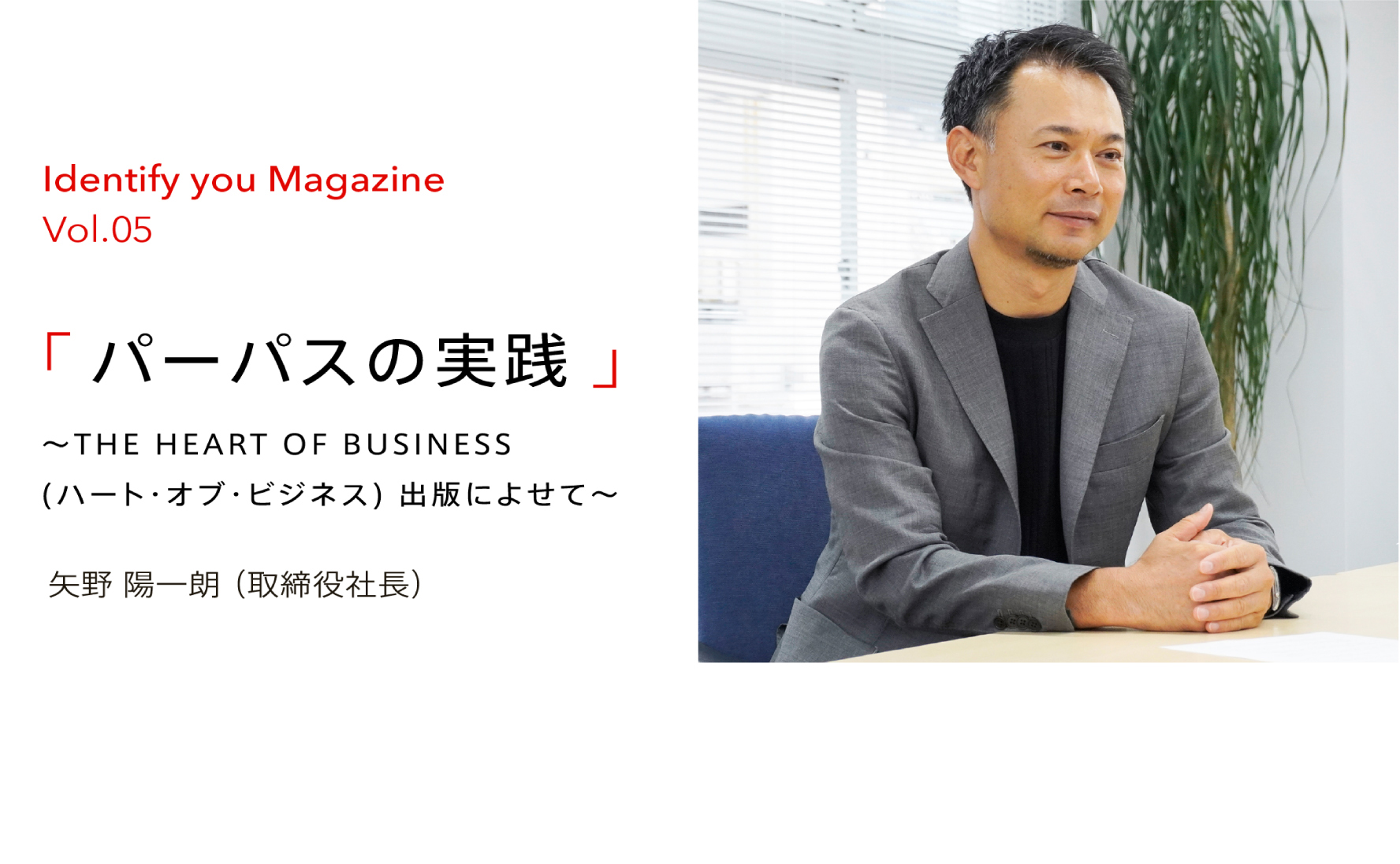
Companies uphold philosophies in order to maximize results and fulfill their business objectives by moving in a single direction.Even with these ideals, many corporate executives face challenges when it comes to putting them into practice. However, in 2012, Hubert Joly, who had no experience in the retail industry, became CEO of Best Buy, a major electronics retail chain in the US. He successfully restored the company’s performance by setting and implementing its purpose. The Japanese edition of The Heart of Business, which compiles his experiences into a book, will be published by Eiji Press in late July. We asked Yoichiro Yano, President of Gramco, who wrote the commentary for this book, about the message this book conveys.
-- Before we get to the main issue at hand, let me ask you about the definition of purpose. Gramco was one of the first to introduce the concept of purpose to Japan. Please tell us about the background behind the spread of purpose in Japan.
Yano: I think it can be said that Japanese companies have always been proactive in spreading their philosophy of management to employees through family precepts and company mottos. In particular, I think the influence of Eiichi Shibusawa from the Meiji era was particularly significant. The moral view of management that a company must exist not for private gain but to serve the world and contribute to the nation’s improvement has been widely rooted in the Japanese business world for a much longer time than in Western companies. As described in detail in the commentary of this book, for example, Matsushita Electric’s "Charter" in 1929 already contained content that is relevant to today’s purpose.
Later, in the 1990s, Peter Drucker proposed a framework called MVV (Mission, Vision, and Values), a system of philosophy which was popular in Japan for a long time. However, the content of this framework has become hollow over time, with many employees lacking awareness of whether they are putting it into practice on a daily basis. I suspect that the majority of people are so focused on meeting sales targets and quotas that they don't have time to reflect on what they are working for.
-- The data seem to show a decline in labor motivation of this kind.
Yano: The research firm Gallup conducts employee engagement surveys worldwide, and the latest survey shows that Japan has the lowest percentage of employees who feel fulfilled with their jobs among developed countries, at around 5%. Conversely, the US has the highest rate, at about 34%. Similarly, East Asia, China, Korea, and other countries have employee engagement rates above 10%, so the fact that Japan has the lowest level of employee engagement is not because it is an East Asian culture. This is what the results show.suggest.
-- I see. I feel that this is one of the reasons for Japan’s stagnant economic growth. Earlier, I asked you about the background of the permeation of corporate philosophies in Japan, and it seems to me that this decline in work motivation is also part of the context of the permeation of purpose. Are there other factors?
Yano: I think the collapse of Lehman Brothers in 2009 was a significant event. Until then, the dominant view was that maximizing shareholder value was the sole purpose of a company. However, this view collapsed with the collapse of Lehman Brothers, causing management to reflect greatly on the situation. Around the same time, global environmental issues became increasingly alarming, circulating the idea that the more profit is pursued and economic efficiency increases, the more the Earth will be damaged, making it uninhabitable. Companies are now required to reflect on the excesses of capitalism and proactively respond to global environmental issues.
And as young people began to voice their opposition to corporate activities that did not take the environment into consideration, companies were no longer able to overlook them. Against this background, around 2010, the concept of purpose began to take shape in Europe and the US as companies sought to demonstrate their significance, and it has gradually become more widespread.
Gramco has been introducing various aspects of purpose through seminars and other means since 2016. Last November, purpose was featured prominently on the front page of the Nikkei Shimbun, indicating that the interest in this concept is growing. On the other hand, we are concerned that it will become a buzzword and a passing fad. First of all, I hope that through this book,people will be able to understand the essence of purpose.
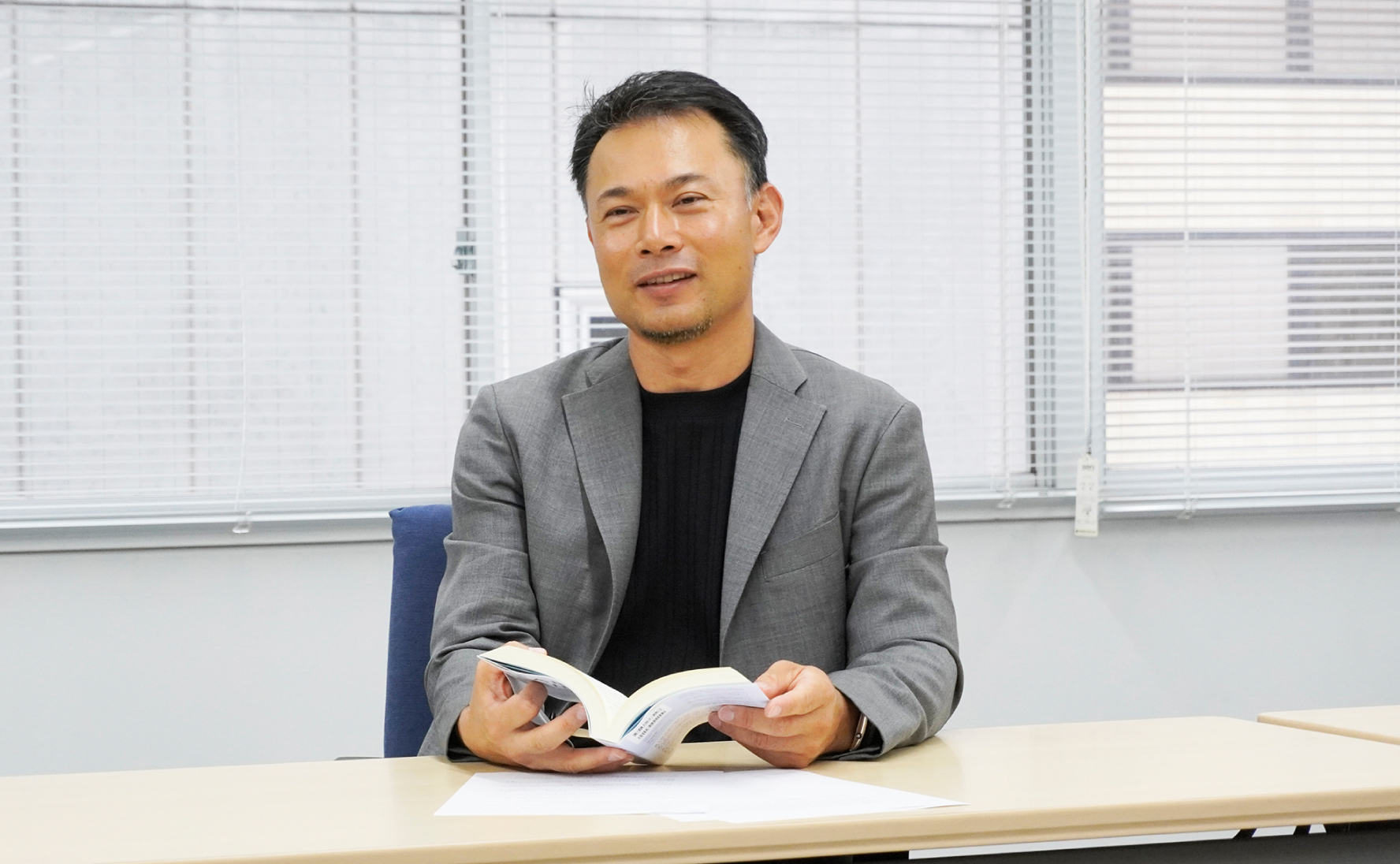
-- Thank you very much. In light of this background of purpose’s permeation, let’s talk more about The Heart of Business. I understand that you are heavily involved in the publication of the Japanese version. Please tell us how this came about.
Yano: I approached Eiji Press immediately after the release of Hubert’s original book to discuss the possibility of translating and publishing it. However, it all started 10 years ago when we worked together on the publication of the book Self-Renewal, before I joined Gramco. John W. Gardner wrote a wonderful book titled Self-Renewal in the 1960s. I planned its publication because I wanted to translate it into Japanese and introduce it to the world.
I know this is off topic, but let me proceed for a moment because this book has a lot to do with purpose. Originally a psychologist, Gardner worked as a speechwriter for President Kennedy before becoming Secretary of Health, Education, and Welfare under the Johnson administration, where he helped implement the policies of the "Great Society" program. After leaving politics, he supported non-profit organizations and became a professor at Stanford University, where he trained many people. He was regarded as the most influential intellectual in the United States during the 1970s and had a significant impact on several leaders. There is a passage in Self-Renewal that discusses the meaning of life.
Storybook happiness involves a bland idleness the truer conception involves seeking and purposeful effort. Storybook happiness involves every form of pleasant thumb-twiddling true happiness involves the full use of one’s powers and talents. Both conceptions of happiness involve love, but the storybook version puts great emphasis on being loved, the truer version more emphasis on the capacity to give love.
Excerpts from Self-Renewal: The Individual and the Innovative Society, John W. Gardner
What this is trying to convey is that we all want to lead meaningful lives, and that meaning comes from giving love, not from being loved. In other words, the meaning of life is to be of use to others, and pursuing this purpose leads to the happiness of those around us.
-- Purpose means asking "Why?" over and over again, till you discover the essential reason.
Yano: Yes. Touching upon Hubert’s current approach, when I first read the book, I thought it was a story of how he had implemented Gardner’s approach from 60 years ago into practice in present-day corporate activities. I thought Hubert’s repeated mentions of aligning each employee’s purpose with that of the company’s was extremely impressive. In other words, a company exists to help each person pursue a meaningful life, while the company itself, as an organization, pursues one major purpose.
By making these connections, he creates what he describes as "human magic," meaning that incredible magic can happen. In fact, he successfully revived the struggling Best Buy.
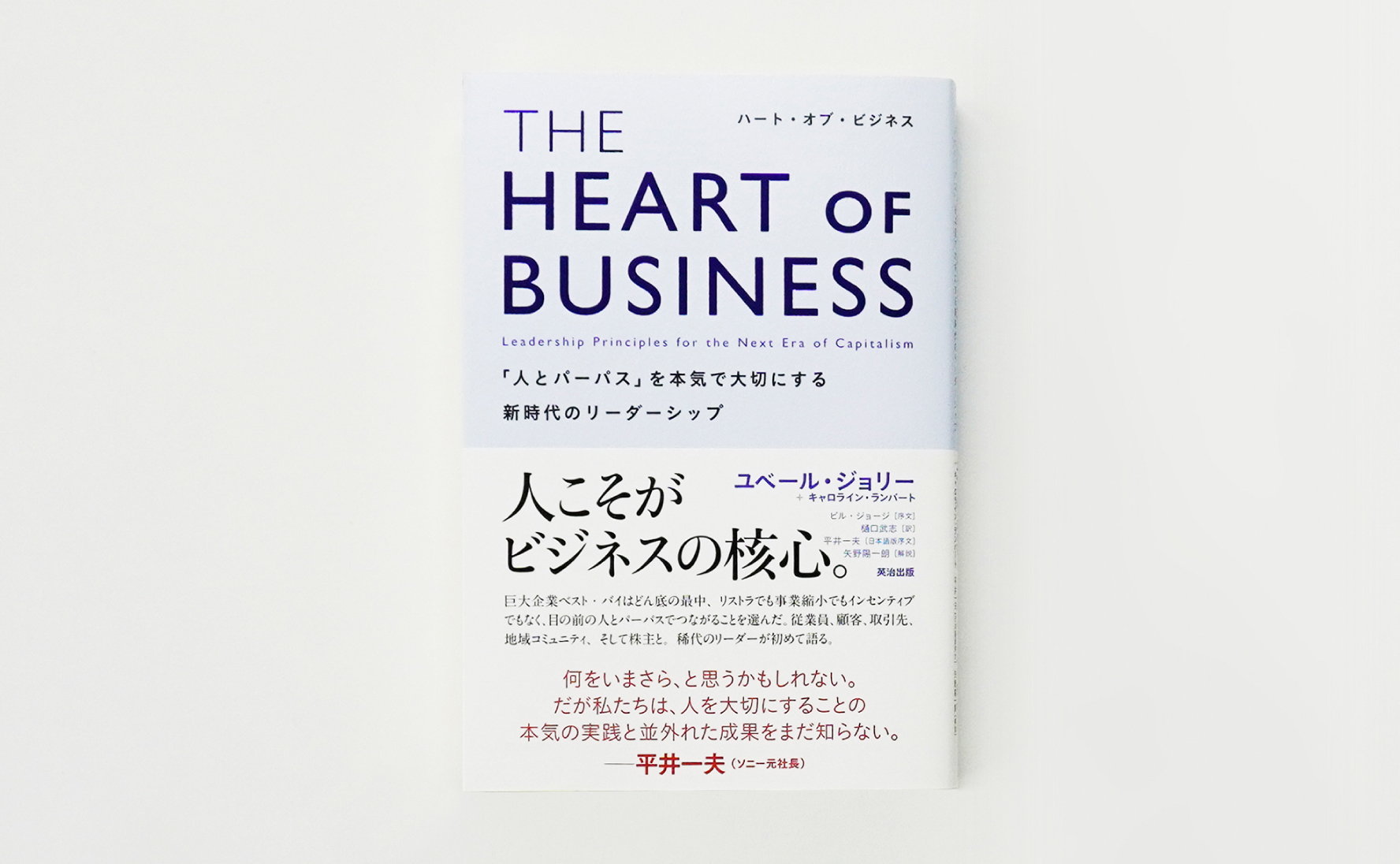
The Heart of Business -- Leadership Principles for the Next Era of Capitalism, Hubert Joly [Japanese Preface] Kazuo Hirai [Commentary] Yoichiro Yano [Translation] Takeshi Higuchi/Eiji Press
-- As you just mentioned, Best Buy has been fully restored after 5 years without store closures or restructuring, due to the "Renew Blue Plan" accompanied with a sense of purpose, since Joly took over as CEO in September 2012. The stock price also improved seven-fold. What aspects of this book particularly resonated with you?
Yano: There are several aspects, but to name a few, one standout moment is when a store manager asked each member of his team, "What is your dream? " He proceeded to list down their dreams on a white board and said that each one of them should help one another make their dreams come true. For example, a young female salesperson’s dream was to leave her parents’ home and live independently. However, with the current low salaries, achieving independence is not easy. Then, the manager provided her with friendly support on what she needed to do to fulfill her role at Best Buy and get a raise.
While sharing those individual dreams within the company, support was provided to enable success. I was impressed by the fact that such people-oriented activities were at the core of Best Buy’s rebuilding efforts and that they were put into practice.
-- In Japan, people may feel embarrassed to talk about their personal dreams in the workplace, but this is a wonderful example of how powerful it can be when an individual’s dream and the company’s intended path coincide. How about others?
Yano: It is interesting to note that Hubert’s personal growth is honestly described throughout the entire project, and it is fascinating to see his personality come through. He candidly describes how he was an inefficient, unmotivated worker as a student and how his terrible work experience inspired him to avoid repeating those mistakes if he ever became a manager. I think it is interesting to read about the growth of a person, not just the experiences of someone who is successful, but someone who continually reflects on what needs to be prioritized as a manager while also being open about their shortcomings.
-- You just mentioned Hubert's appeal as a manager. We might say this book is about the image of leadership based on purpose. In this regard, what qualities do you think are necessary for future leaders?
Yano: In Japan, people may admire a leader like Nobunaga Oda, who demonstrated strong charisma and decision-making abilities while forcefully guiding his subordinates through challenging situations. However, research has shown that there are no definite qualities that make a leaders. Warren Bennis, a recognized authority on leadership theory, conducted research on various leaders and found that each one developed their own unique leadership style, shaped by their unique personality.
In this book, Hubert says that it is okay for leaders to be vulnerable show weakness. This may seem counterintuitive to many people, but I think it is very important to bridge the psychological gap with employees and communicate with each one of them. Be your own person, value your own opinions of course, but also have the ability to listen to and consult with others when necessary. That’s a simple description of human ability, which I believe is a necessary quality for future leaders.
--You were appointed President of Gramco in May this year and became the leader of Gramco. What kind of leader are you aiming to become?
Yano: Gramco is a professional services firm, so it is important to provide good services to solve our clients’ problems, and we aim to build a strong organization to achieve this. We need to create a virtuous cycle in which good work is recognized globally, the company gains recognition for its achievements and secures future opportunities, and people who wish to contribute to that success are drawn to the company. As the organization’s leader, I want to make progress in line with everyone’s vision.
-- Since there are people with various individualities and abilities at Gramco, you want to do a good job while demonstrating each individual’s strengths.
Yano: Yes, of course I want everyone to follow me by practicing what I do, but there are many planners and designers who are better than I am, and I want to create an environment in which they can be empowered.
-- Now, back to the book an online seminar was held at the end of June to celebrate the book’s publication, bringing the authors together. Looking back on that day, what were your impressions of the author, Hubert's, and former Sony President Kazuo Hirai, who wrote the preface to the Japanese edition?
Yano: I was very impressed by the fact that both of them were leaders of large organizations and were tasked with rebuilding their companies, yet they were very friendly and kind without displaying arrogance of any kind.
This ties in with what I said earlier, but at the same time, I sensed a warm, human personality, even though both of them have strong personal beliefs. It was a great opportunity to experience it up close.
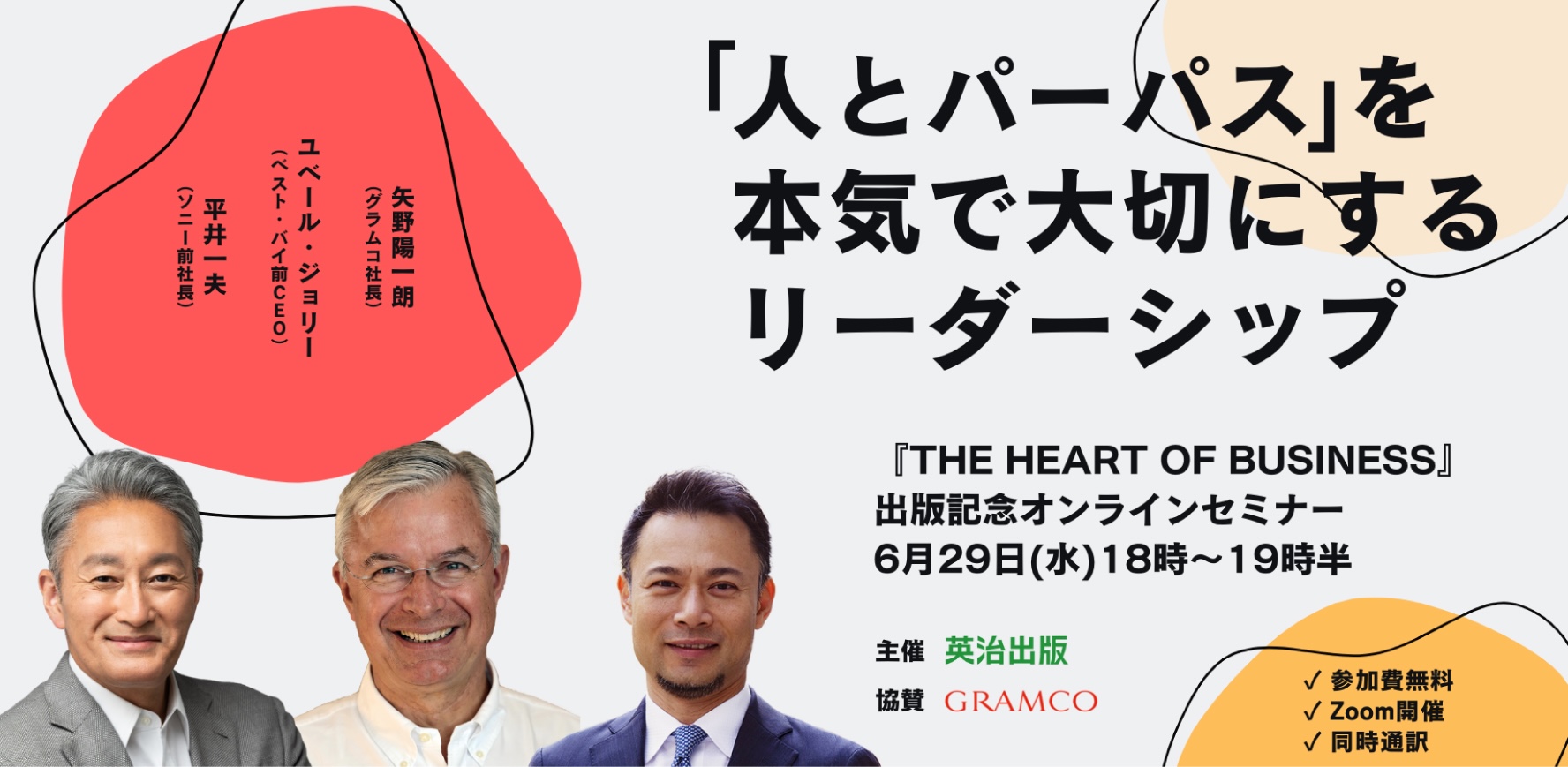
From the announcement of the publication seminar held on Wednesday, June 29 - Kazuo Hirai, former President of Sony (left), Hubert Joly, author (center) and Yano (right)
-- Are there any particular things that either of you said during the seminar that stand out to you?
The importance of people is something that both of us repeatedly talked about using different words. How do we make sure that a person is positively motivated to work? In their own words, each of them said that in order for this to happen, the leader must repeatedly convey the company’s purpose and help participants carry it out. The book’s cover says, "People are the core of business," which holds true.
It seems to me that the importance of people in the workplace has become so commonplace that managers no longer mention it. However, due to this very reason, employee motivation in Japanese companies remains low, and I believe we should acknowledge this once again.
-- This ties into what you mentioned earlier about Japanese companies having low job satisfaction. To conclude, what do you think is most important for companies to practice purpose effectively?
We at Gramco help our clients build their philosophy system what is important in this process is the kind of purpose they establish, isn't it? To this end, we conduct research from various perspectives and search for the essential words through collaborative working sessions. Through this book and seminar, I have come to realize that deciding on words is just the beginning.
How can those at the top truly understand, reiterate to employees, and communicate in a way that resonates with the entire staff? Additionally, how can we maintain a high level of motivation every day while aligning individual and organizational purposes? I was reminded again of the importance of instilling and practicing purpose.
As Hirai mentioned during the seminar, it is especially important for top management to take responsibility for the words they decide to use and to convey them repeatedly. Only then will purpose shine within the company.
Details of the online publication seminar held on Wednesday, June 29, are available at the following link.
https://logmi.jp/business/articles/327035
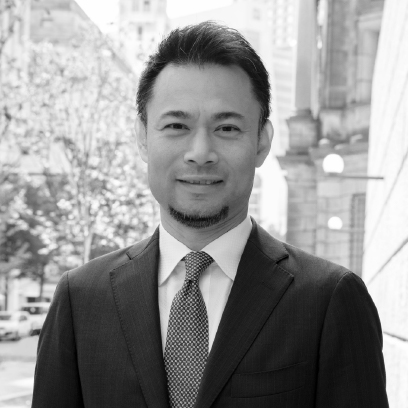
President
2018
Joined Gramco
Identify you Magazine Vol.09
2025.02.05
Identify you Magazine Vol.08
2024.02.07
Identify you Magazine Vol.07
2024.01.24